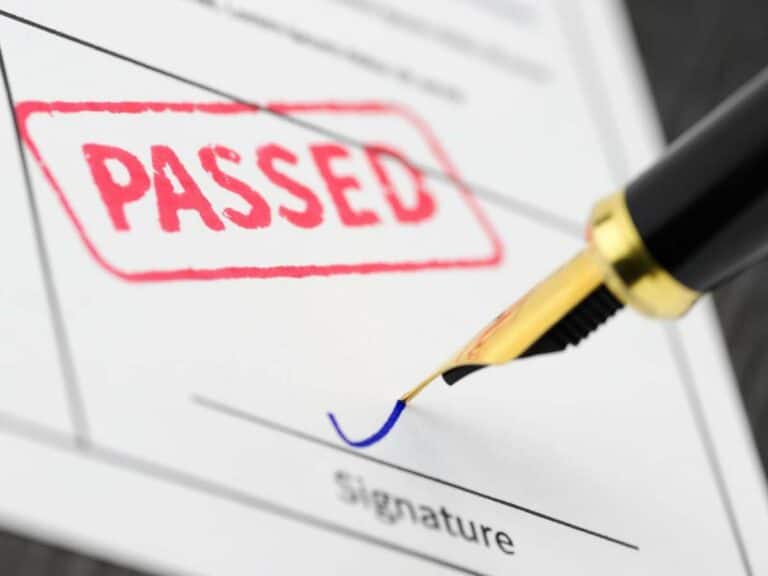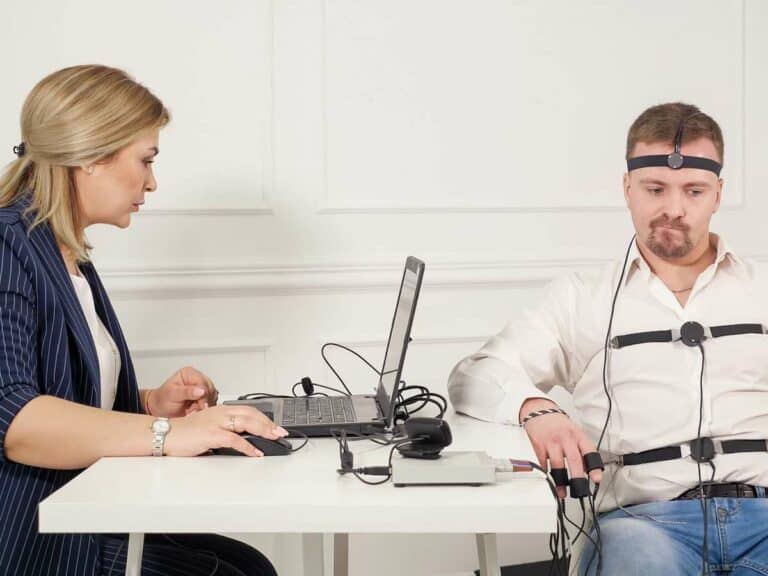9 Types of People Who Should Not Take a Polygraph Test
According to proponents, a lie detector test is correct 80% to 90% of the time. However, not 100% of the population can be strapped to a polygraph machine. Some individuals, whether or not they refuse to take the examination, are deemed not suitable by polygraph examiners themselves to undergo it for whatever purpose or reason.
The presence of certain physiological or psychological conditions can make people unsuitable to take a lie detector test as it’s very much possible for the exam to yield an inconclusive result or an error. In some instances, some people cannot take a polygraph test because it can endanger health and safety.
In this post, I will talk about individuals who are likely to be exempted from having a polygraph test.
Continue reading whether you are scheduled for a lie detector test or you want someone to take the examination. Below, you will come across some of the reasons why the exam cannot be conducted on some.
1. People Who Don’t Want to Take It
First things first: nobody is ever under any legal obligation to take a lie detector test. So, in other words, no one can force you to subject yourself to a polygraph test. Even if you are suspected of committing something, you can say no to it — and your refusal to have the examination cannot be used against you.
There’s no need for you to agree to a lie detector test if you are not comfortable taking it.
In many jurisdictions or states, anyway, the result of a lie detector test does not have admissibility in court. So, in other words, it’s something that cannot be accepted as a piece of evidence by the judge to come up with a verdict.
Polygraph examinees have various rights. Some of them include:
- Right to a written notice before the test
- Right to refuse or discontinue a test
- Right to not have the result disclosed to unauthorized persons
Even though it’s true that a lie detector test result is inadmissible in some cases, as always, there are exceptions to the rule. Certain federal, state and local government agencies, for instance, may require job applicants to take a polygraph test as a part of the pre-screening employment process.
Needless to say, the result of the examination can determine whether or not they are qualified for the post.
Still, despite it being the case, one can always say no to a polygraph test. But since the law permits these government agencies (and even some private companies) to use a lie detector test in assessing and investigating applicants, those who lose their eligibility for refusing to have an examination cannot sue.
Warning: Always consult with your lawyer before accepting or declining a polygraph test since state laws may change.

2. Pregnant Women
There are a handful of reasons why women who are in the family way are usually not allowed to undergo a lie detector test unless they have written approval from their respective doctors.
One of the reasons is that pregnant women are usually uncomfortable, especially true during the last trimester. As a general rule of thumb, the further along a female is in the pregnancy, the more discomfort she experiences. According to polygraph examiners themselves, being uncomfortable can affect the result of the test.
It’s also not uncommon for pregnant women to have higher blood pressure. As a matter of fact, hypertension is considered the most common medical problem in pregnancy.
Health authorities say that the blood volume of pregnant women can increase by up to 45%. And the extra blood that their hearts have to pump throughout their bodies can cause an increase in blood pressure readings. Moreover, it can increase their heart rate. A polygraph machine measures both blood pressure and heart rate of the examinee.
Many lie detector test examiners will not hesitate to steer clear of pregnant women.
That’s because too much stress and anxiety a polygraph examination brings may jeopardize their pregnancy, which can easily lead to expensive and damaging lawsuits. But, as mentioned earlier, having a letter of approval from their doctors to undergo a polygraph makes it possible for pregnant women to push through with the test.
Read Also: These Medical Conditions Affect a Polygraph
3. Those Who Have Serious Heart Conditions
A polygraph machine is designed to measure and record a number of physiologic processes. Many of them have something to do with the heart, such as the blood pressure and heart rate. Some can be affected by the cardiovascular system, too, such as the respiratory rate and respiratory quality.
Because of this exactly, individuals who are suffering from certain heart conditions are not allowed to undergo a lie detector test. The same is true for those who just had heart surgery or procedure.
Coronary artery disease (CAD) — this is the most common heart problem, cardiologists say.
Someone who has CAD means that the supply of blood to his or her heart muscles is compromised as a result of blockages in the coronary arteries, or blood vessels that supply oxygenated blood to the heart itself. A report by the Centers for Disease Control and Prevention (CDC) says that CAD killed more than 380,000 people in 2020.
What makes it dangerous for someone with CAD to take a lie detector test is that it can prove to be so stressful and terrifying for the individual that he or she may suffer from a heart attack.
Some heart-related conditions themselves can affect a polygraph test, causing an error or an inconclusive result. One example is hypertension, which can cause the individual’s blood pressure to remain elevated throughout the examination. Another is arrhythmia, which is characterized by either a very fast or very slow heart rate.
If you have a heart condition, serious or not, it’s a good idea to obtain medical clearance from your doctor before having a polygraph test in order to avoid complications.
You should also inform the polygraph examiner about the matter beforehand.
4. Individuals With Paralysis or Nerve Damage
According to health experts, paralysis is often the result of a stroke. But it can also be caused by certain medical conditions or diseases as well as vehicular accidents and sports injuries.
No matter the case, those who suffer from paralysis should not take a lie detector test.
Various complications can result from a spinal cord injury that damages the nervous system. For instance, it can affect the heart rate. It’s not uncommon for paralyzed individuals, for instance, to have tachycardia. Simply put, tachycardia is something that makes the heart beat more than 100 times a minute, which is above the normal range.
During a polygraph test, the heart rate is one of the things that is measured. A fast heart rate may be mistaken for deception when in fact the person is being truthful except that he or she has tachycardia.
Other than the heart rate, paralysis may also affect both the blood pressure and respiratory activity.
People with nerve damage due to injuries or medical conditions like diabetes, Guillain-Barre syndrome and autoimmune diseases such as rheumatoid arthritis and lupus are also sometimes disqualified from taking a polygraph test. This is particularly true if the nerves that control the sweat glands are affected.
Sweating is one of the various things that a polygraph machine observes, which is why it has a couple of galvanometers that are attached to the fingertips of the examinee.
5. Those With Respiratory Illnesses
Besides the respiratory rate or the number of times you breathe per minute, a lie detector instrument also measures the quality of your breathing. Is it slow and deep? Is it fast and shallow? These things are also taken into account by the examiner when evaluating the chart in order to come up with a report.
It’s due to this why a problem with the lungs or airways can affect a polygraph.
Some respiratory problems are simply more serious and complicated than the rest. Case in point: COPD. Short for chronic obstructive pulmonary disease, COPD refers to a group of diseases that cause breathing-related problems as a result of long-term inflammation of the airways, thus causing the obstruction of airflow to and fro the lungs.
Both emphysema (damage to the walls of the alveoli, or air sacs of the lungs) and chronic bronchitis (irritation of the bronchi, or airways in the lungs, which causes severe coughing spells) are COPD examples.
Irritants such as smoke, fumes, dust and pollution can trigger COPD.
Stress and anxiety, both of which can be experienced by an individual who is undergoing a lie detector test, are also common triggers of COPD. When people with COPD feel stressed and anxious, they tend to breathe faster. This causes them to feel short of breath, which can cause even more stress and anxiety. It’s a vicious cycle!
Those who have the common cold and flu, both of which are respiratory illnesses, are also prohibited from taking a lie detector test. These infections can elevate different physiologic processes.
Also, medications for them can further increase the blood pressure and accelerate the heart rate.

6. People Who Have Had a Stroke
According to the American Stroke Association (ASA) itself, 1 in 4 stroke survivors will have another stroke. On the other hand, a report by the Baton Rouge Clinic, even a slight increase in stress and anxiety may raise stroke risk — those who are the most stressed and anxious are 33% more likely to have a stroke.
Due to the possibility of having another stroke, whether due to stress and anxiety or any other risk factor, individuals who just suffered from a stroke should not be subjected to a lie detector examination.
Besides, paralysis happens to about 80% of people who have had a stroke.
We earlier discussed the fact that paralysis is a reason for not having a person take a polygraph test. That’s because of the effect that it can have on the blood pressure, heart rate and even respiratory activity. So, in other words, it’s not unlikely for a stroke survivor with paralysis to end up having an inconclusive result or an error from a polygraph test.
Then there’s also the fact that cognitive impairment is quite common among those who suffer from a stroke. According to a report, as many as 2 out of 3 stroke patients experience cognitive impairment or decline.
With decreased cognitive ability, someone who just suffered from a stroke may fail to properly understand the questions asked during a lie detector test. No matter how properly formulated or constructed polygraph questions are, they mean nothing if the examinee with any form of cognitive impairment does not comprehend them properly.
7. Extremely Stressed and Fatigued People
By now, we have established the fact that there are all sorts of medical conditions that can affect a polygraph and even put one’s health and well-being on the line, which is why many of those who are suffering from them are barred from undergoing a lie detector test, except in instances when they have medical clearance.
Having a health-related problem is not the only thing that can keep you from being fit to take the test.
Stressed because of a serious work- or family-related problem? Tired because your lie detector examination is scheduled after carrying out your duties and responsibilities? Fatigued for not having a good night’s sleep?
Then chances are that the polygraph examiner will reschedule the test at a later date. That’s because it’s a complete waste of time to subject someone with high stress levels to a polygraph exam — due to agitated physiologic processes, it’s very much possible for the test to yield an inconclusive or false positive result.
As a result of this, it’s not uncommon for most online articles on preparing for a polygraph test to recommend getting enough Z’s the night before the exam.
It’s also a good idea to choose your polygraph examination schedule wisely. If you have a midnight shift at work, for instance, consider taking your lie detector test in the afternoon so that you can have plenty of rest before you head to the testing center. Refrain from having one immediately after work or an exhausting engagement.
8. Victims of Sexual Abuse
Nothing can be more stressful and nerve-racking for individuals who are victims of sexual abuse to try to recall the ordeal in any way or form, such as when undergoing a lie detector test and being asked questions related to it.
For some, it can also be an embarrassing and degrading experience to talk about the matter.
This is exactly why sex crime victims, just like other people, have the right to refuse to take a polygraph examination. As a matter of fact, it’s strictly prohibited for them to be told that the investigation or case would not go forward unless they agreed to be strapped to a lie detector machine.
The Pennsylvania Coalition Against Rape (PCAR), for instance, opposes all lie detector testing or the use of any other truth-telling device not only on victims of sexual assault but also on non-offending family members or significant others of the victims. The group believes that all sex crime victims are telling the truth unless the evidence says otherwise.
Considered, too, when it comes to subjecting individuals who suffered from sexual abuse is the 2005 Violence Against Women Act, which was renewed in 2013 and again in 2022.
Law enforcement investigators and prosecutors may not request or require the use of a lie detector test or an examination similar to it with victims of sexual assault as a prerequisite for the initiation or continuation of an investigation or prosecution — this is one of the provisions of the said act.
9. Mentally Incompetent Individuals
While we were talking about stroke earlier as a reason for a person not taking a lie detector test, it was mentioned that cognitive impairment is one of the things that can make a stroke survivor unfit to have the examination.
It goes without saying that those who are mentally incompetent are not ideal polygraph examinees.
Simply put, a person is considered mentally incompetent if he or she is of unsound mind, either sporadically or consistently, as a result of a mental defect. Some common examples of such a mental defect include dementia and retardation. Mental incompetence, by the way, can be congenital or a result of an injury, disease or condition.
Those who are suffering from certain psychiatric disorders, including schizophrenia, which is characterized by having delusions, hallucinations and disorganized thinking, are also considered mentally incompetent persons.
And speaking of mental illness, polygraph examiners also refuse to administer the test on psychopaths, sociopaths and even pathological liars. That’s because these individuals are very good at lying — so much so that they themselves believe the lies they state. Needless to say, they can easily pass a lie detector test.
Just Before You Agree to Take a Polygraph Test
Various medical conditions, whether physiological or psychological in nature, can prohibit a person from taking a lie detector test. But there are instances, too, when simply not wanting to take one is more than enough to keep any polygraph examiner from hooking you up to the instrument.
Especially if your health and safety might be put in peril, it’s a terrible idea for you to subject yourself to the stress and anxiety a polygraph examination can put on your mind and body.
During the pre-test phase, make sure that you inform the polygraph examiner of any health issue you have.






